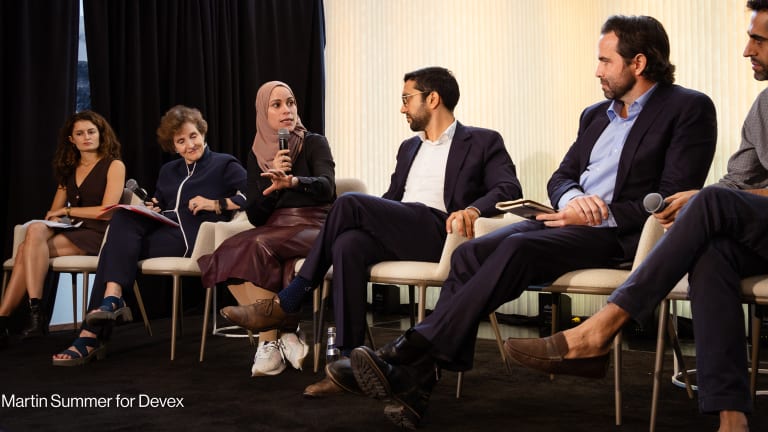
In the coming years, expect the U.S. Agency for International Development to pursue more partnerships with local and foreign private corporations and to boost investments in business-related reforms in partner countries as the agency moves to make private sector development a key part of its mission.
This was announced by USAID Administrator Rajiv Shah at the USAID Public-Private Partnership Forum held Oct. 20 in Washington. D.C. , where he outlined a new direction for the agency’s work and encouraged the development community to “embrace a new wave of creative, enlightened capitalism” that connects profit, wealth and development.
“Those words may sound like an odd combination,” Shah said. “But at a time when businesses believe in the urgency of development, those words will define the future of our field.”
Shah also stressed that supporting private sector-led growth is in the U.S. national interest and would benefit U.S. busineses and the economy in the long run: “The free trade pacts of tomorrow—the ones that will strengthen American companies and create jobs here at home—will be in exactly the places that USAID is working in now, helping to improve standards of living and provide linkages to American firms.”
This push to elevate partnerships and support for private sector-led development as a key part of USAID’s mission is in line with U.S. President Barack Obama’s development policy, which includes promoting broad-based economic growth as one of its pillars. It is also in line with an emerging trend among donors to engage in development efforts that would help recipient countries graduate eventually from aid dependence.
USAID, according to Shah, would tap partnerships with foreign and local private corporations, including multinationals such as Coca-Cola and Pepsi Co., to leverage U.S. investments in the developing world.
“I’m not talking about partnership for partnerships sake,” Shah stressed. “I’m talking about helping support the work of markets that can deliver profits and create opportunities for women, minorities and the poor. We must partner with the private sector much more deeply from the start, instead of treating companies as just another funding source for our development work.”
USAID aims to create and maintain these partnerships through its recently launched Office of Innovation and Development Alliances. Maura O’Neill, USAID’s senior counselor and chief innovation officer, discussed in an exclusive interview with Devex her vision for the new office she now heads, and how organizations can do business with IDEA.
Aside from forging partnerships that could leverage U.S. overseas development investments, USAID aims to fill the gap in private sector expertise by sending what Shah described as “investment officers” to serve in USAID missions in priority partner countries.
These officers will be pulled the from USAID’s pool of private enterprise officers, who boast backgrounds in the private sector and capital markets experience. They will serve as deal originators who will help USAID missions develop and implement private financing solutions to development problems, Shah said.
The investment officers will also be tasked to leverage local capital through USAID’s Development Credit Authority, which was created to offer loan guarantees among other measures of unlocking local sources of capital.
“Today, I am asking each of our missions around the world to reallocate resources to these mechanisms to leverage more local capital—billions of dollars—at no extra cost to us taxpayers,” Shah said, adding that two-thirds of DCA’s portfolio will be directed to private sector health services, agriculture and in sub-Saharan Africa.
Beyond this direct engagement with the private sector in its partner countries, Shah said USAID also seeks to encourage pro-business policy reforms by taking advantage of the U.S.’ unique relationships with foreign governments. USAID aims to accomplish this by focusing its core economic growth assistance on countries with “real commitment to private sector-led growth,” employing more local expertise when providing technical assistance, and tapping more local political experts to develop USAID’s knowledge base of political costs and challenges in its partner countries.
Read more:
Read more on U.S. aid reform online, and subscribe to The Development Newswire to receive top international development headlines from the world’s leading donors, news sources and opinion leaders — emailed to you FREE every business day.








